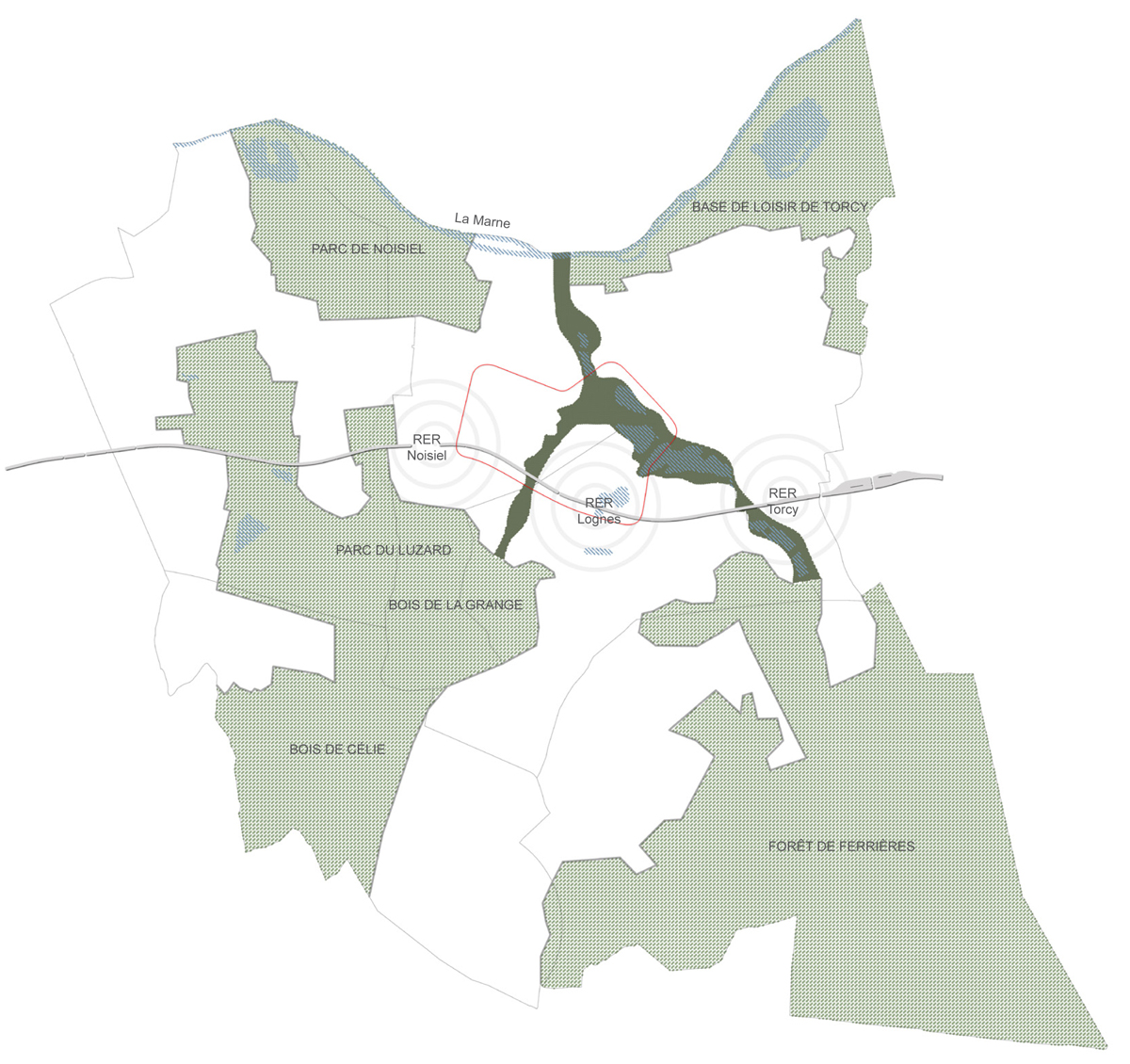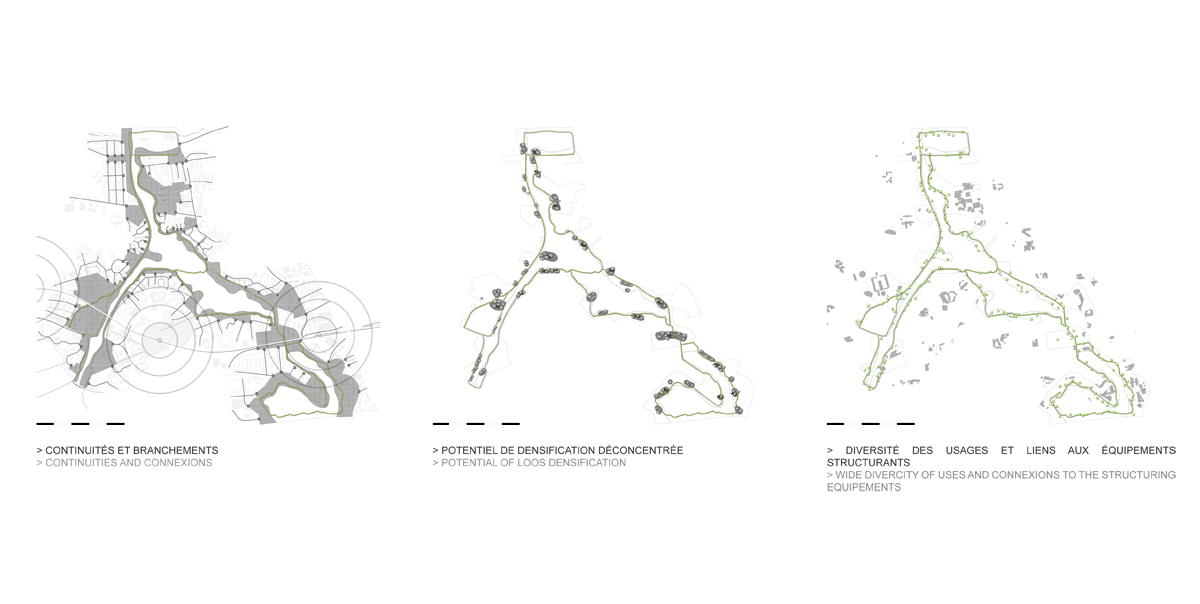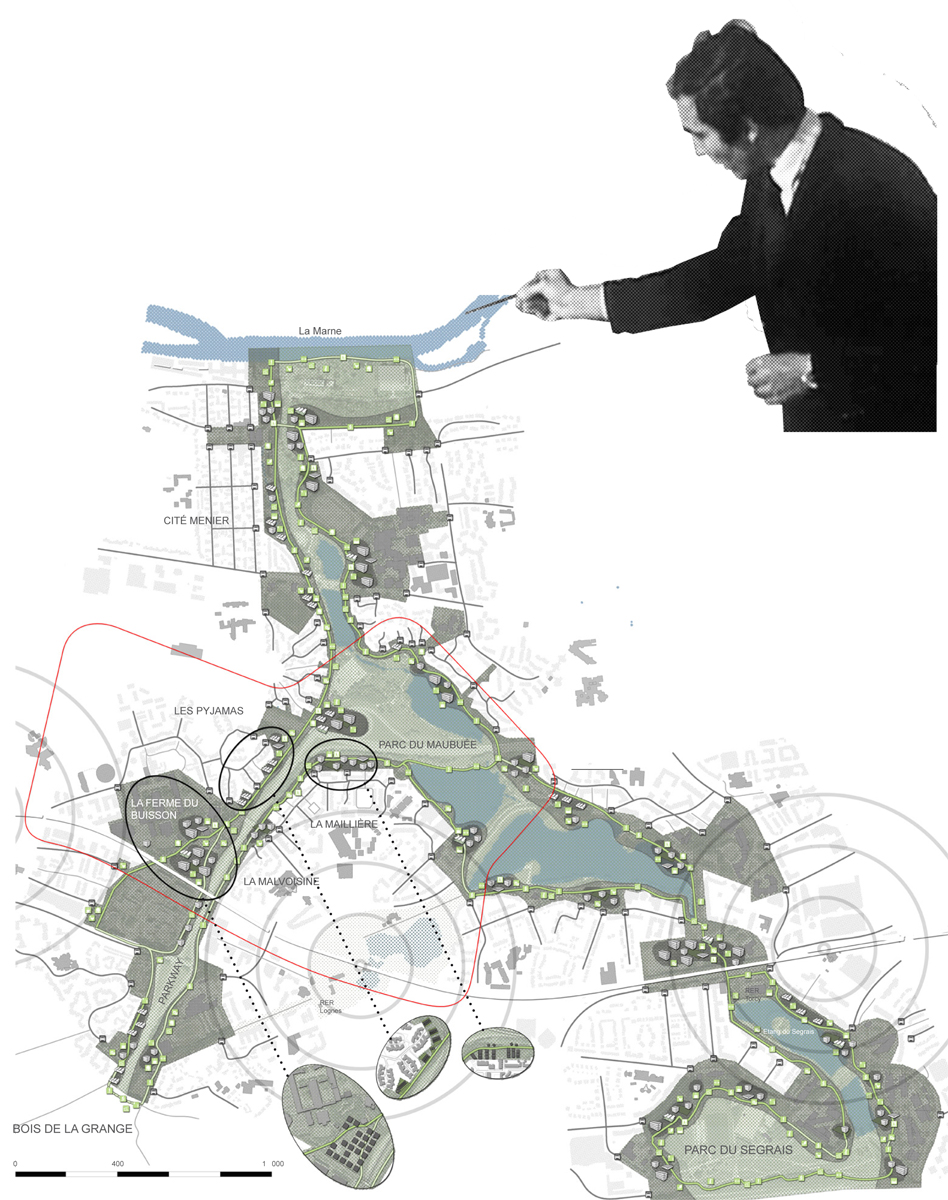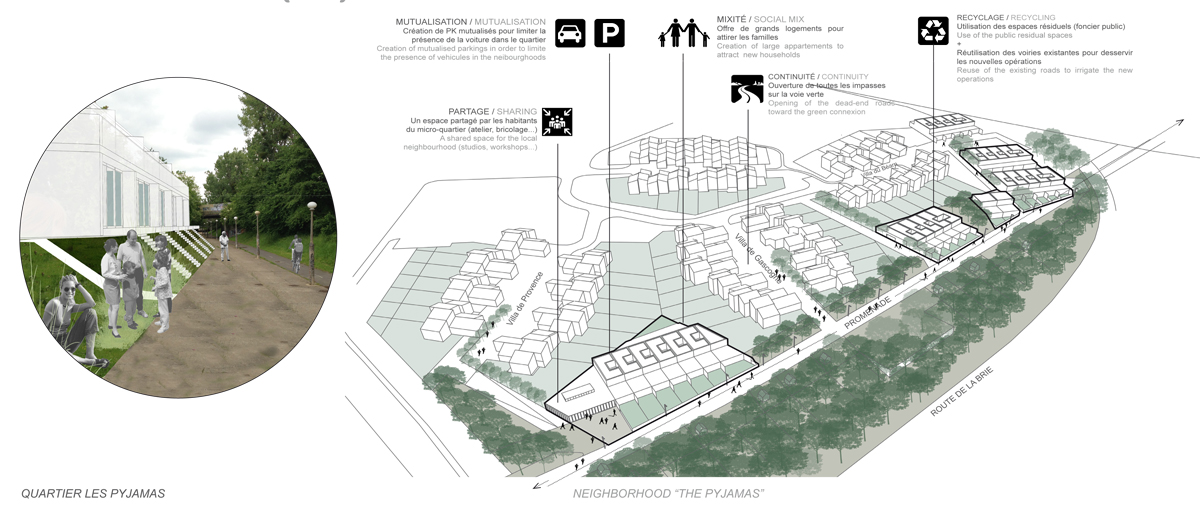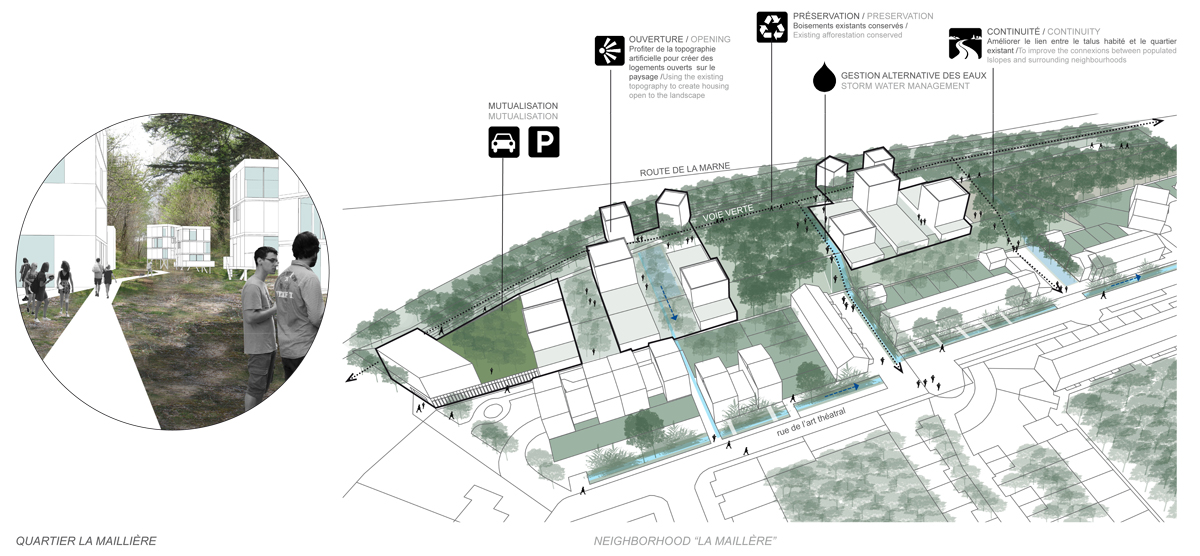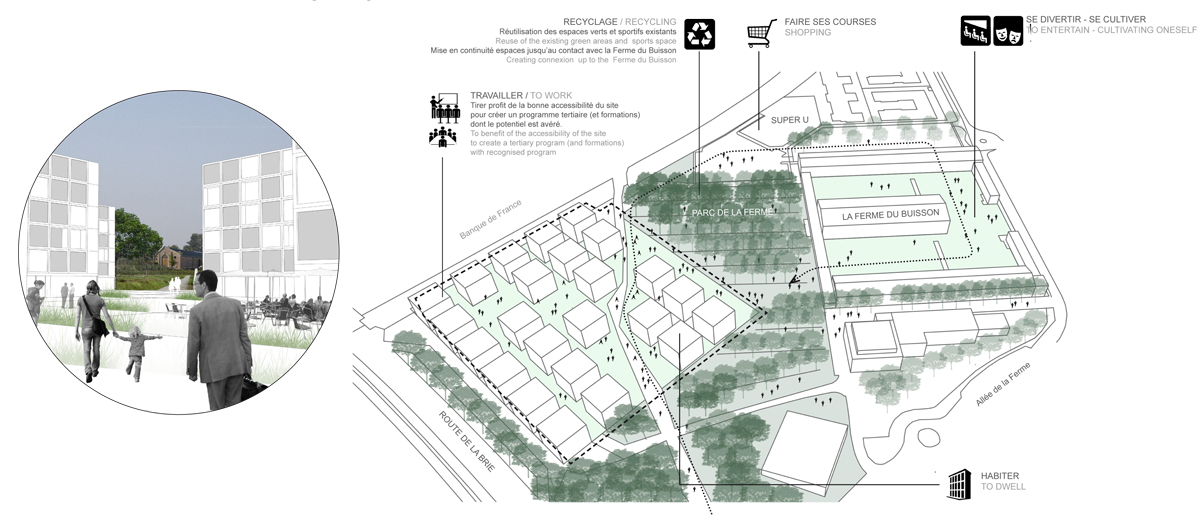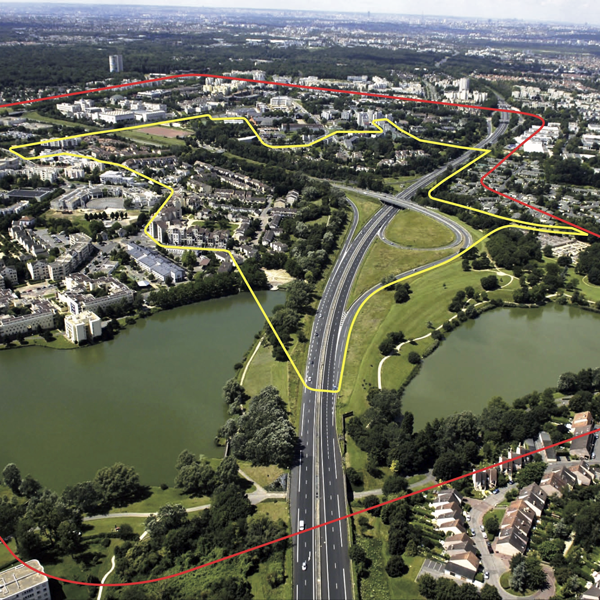Ville N(M)ature
Competition Team
Yoann Dupouy (FR), architect urbanist
Maia Tüür (EE), architect
Europan 13 Marne-la-Vallée
winner
Team Point of View
Since its inception, Le Val Maubuée was conceived as a city-park. The framework was supposed to generate new relations of habitat to the nature. Unfortunately, it is now obvious that despite the impressive amount of public green areas the different forms of interfaces between habitat and nature are limited. The built-up areas on the site are full of closed systems that turn their back to the surrounding green areas. Our project suggests revealing the potential of mutation of the interfaces in the very centre of sector 2 by uniting the existing line of ponds and the residual spaces of infrastructures into a central figure that becomes a connecting green heart of the area. In our opinion the ideation of project is necessarily territorial as it reveals to be an appropriate scale to envision the densifications of the Val Maubuée. The strategy of densification is not seen as a formal process, proceeding by juxtaposition of the new territories “won by urban”, but as a tool to work on the connections and the resilience of the existing neighbourhoods. We propose a linear discontinuous densification by small built areas connected to their green and built environment. The first identification of the possible project areas along the interface reveals that the potential of the residual spaces is more important than one might think. The advantage of this approach is the existence of the road-network and its flexibility of implementation in time, operation by operation.
Jury Point of View
The project offers a forward-looking vision of the nature-city which concentrates on the interface between the landscape areas and the exiting built spaces. It is an intelligent and original project which extends beyond the set perimeter and pursues the experimental work initiated on the territory through a resolutely contextual territorial and landscape approach. This strategy of scattered interventions brings out the infrastructures perceived as obstacles in the territory, leading to the emergence of a large-scale inhabited landscape that has turned its back on experiments with the juxtaposition of mutually disconnected built components.
